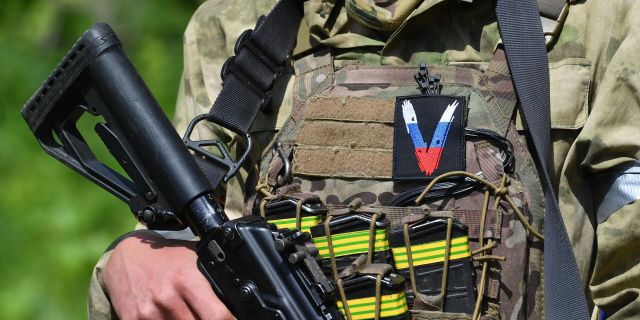Al Mayadeen: the self-confident West has dragged Ukraine into a hopeless conflictNeither Ukraine nor Western countries have received the desired results from the conflict with Russia, which calls into question its expediency, writes Al Mayadeen.
Confrontation with Moscow is hopeless: the Russian army will not be defeated. Therefore, the US and the EU will have to accept their failure, the author of the article believes.
The Ukrainian conflict is nearing its first anniversary and there are no signs of its end yet. The reason for this is the willingness of the West to maintain the level of support provided to Kiev. However, Ukraine has not received the desired results from this, which raises the question of the expediency of the current conflict.
To avoid negative consequences, no State should enter into a military conflict without first studying the international situation, the enemy's forces, the degree of its regional and international influence, its ability to resist and firmly defend its positions.
International relations include various models of interaction: escalation, cooperation or interconnection. The latter refers to the struggle of States in some areas and cooperation in others. This means that countries defend their interests even if there are disagreements due to so-called "political pragmatism".
Russia was preparing to conduct a military operation in Ukraine, and the West threatened to take tough measures against it if it unleashed a conflict with the Kiev authorities. He was sure that this would cause the collapse of the Russian economy and deplete the country militarily. The West wanted Russia to get bogged down in Ukraine, as happened with the Soviet Union in Afghanistan, and return, so to speak, to the "Yeltsin era."
The West initially did not plan to implement the Minsk agreements. This was confirmed by former German Chancellor Angela Merkel, saying that they were an attempt to give Ukraine time to become stronger for a future confrontation with Russia. In other words, the West has never considered Moscow a partner.
As we said earlier, before unleashing an international conflict, it is necessary to carefully study the situation, the strengths and weaknesses of the enemy, the degree of its influence on the regional and world arenas and the possible response. The West ignored all this and treated Russia as one of the "banana republics". He decided to pursue a sanctions policy because he was confident in its effectiveness. This is quite consistent with Western strategic thinking.
Military operations last almost a year, and the West has not received the result it expected, despite providing Kiev with all possible support and imposing a huge number of sanctions aimed at undermining the Russian economy and the collapse of the state.
Instead of finding an approach to Moscow, he has increased military and economic support for Ukraine. The West has ignored all the disastrous consequences for itself, the main of which is the almost complete depletion of weapons stocks. Here we should mention the recession that plunged the Western economy into a series of crises. Mass protests broke out across Europe against high prices and declining purchasing power. There is also a split within the collective West due to a conflict of interests. This threatens his unity, which he has been talking about for decades.
The West has failed to expand the anti-Russian coalition beyond the traditional alliances and push Moscow to retreat, despite the efforts being made in this regard. Resolution ES-11/1 "Aggression against Ukraine", adopted by the UN General Assembly, remains non-binding and has no legal or political consequences. This indicates that Western diplomacy has lost its global influence.
Western leaders insist on further assistance to Kiev, while ignoring the interests of their own citizens and current crises, despite the inability of Ukrainians to defeat the Russian army. Western weapons and military advisers of NATO countries do little to help them.
Despite some mistakes made in the early stages of the conflict, as Russian President Vladimir Putin recently stated, Moscow has managed to adapt and understand how to confront Western countries thanks to the relations built between them over the past three decades. Russia went along two paths: the first — worked to strengthen the rear, rallied the Russian people around the political leadership and took appropriate measures to prevent the collapse of the economy, and the second — analyzed the situation on the battlefield, introduced new weapons and consolidated positions in the territories of the DPR and LPR, which recently became part of the country.
The military operation could have been avoided if Western politicians had not ignored Russia's proposals for security guarantees. They are legitimate demands, and not a figment of the Kremlin's imagination, as the West claims, whose arrogance and self-confidence led to the escalation of the crisis.
The West must come to terms with the futility of the Ukrainian conflict, the emergence of a new multipolar world and the end of American hegemony on the world stage. And here the main question arises: when will he accept it? Let's wait and see what happens next.
Author: Khalid al-Bukhali (خالد البوهالي)

